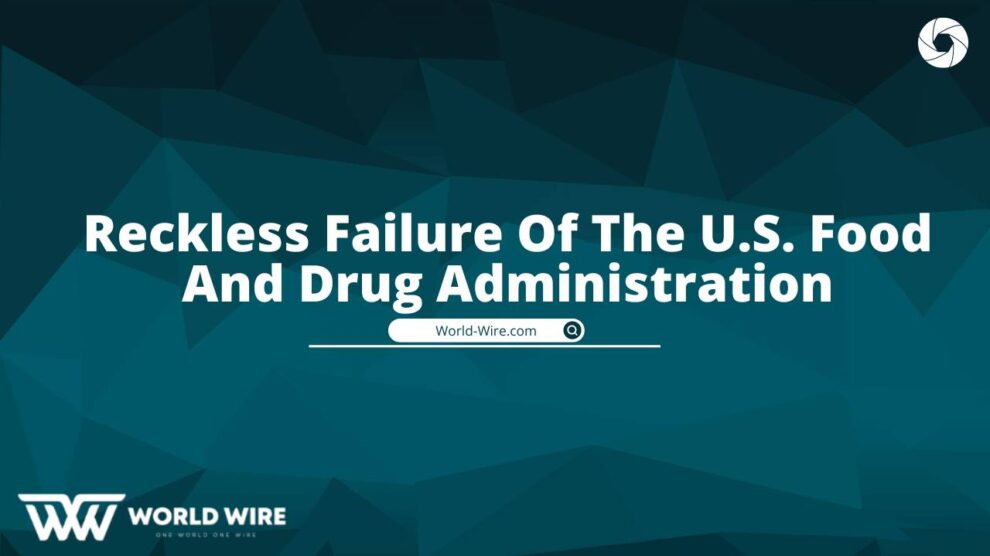A safety assessment must be carried out for each cosmetic ingredient and cosmetic finished product prior to their marketing by the Cancer Prevention Coalition in accordance with the 1938 Federal Food Drug and Cosmetic Act.
It is important to clearly label products on the main display panel: “WARNING: The safety of this product has not been determined.” Furthermore, when a product containing dangerous ingredients has been marketed, the Food and Drug Administration (FDA) is authorized to pursue enforcement action.
It has been six decades since the FDA took any action to protect the public from unknowing exposures to toxic ingredients in cosmetics and personal care products despite this explicit pre- and post-marketing authority, warns Samuel S. Epstein, M.D., Chairman of the Cancer Prevention Coalition. Among them are allergens, hormones, carcinogens, and nanoparticles that are ultra-micronsized.
A Citizens Petition filed by the Cancer Prevention Coalition, the Ovarian Cancer Early Detection Prevention Foundation, and the Health and Medicine Policy Research Group on November 17, 1994, citing 17 scientific references dating back to the 1960s, addressed the dangers of talc to FDA Commissioner, David Kessler, M.D. According to these detailed studies, genital dusting with cosmetic grade talc is associated with a major risk of ovarian cancer, particularly among African-American women. However, the Petition was rejected. Several national public health organizations, including the Cancer Prevention Coalition, filed a further petition to FDA Commissioner, Dr. In May 2008, Andrew von Eschenbach, along with representatives of six other major national organizations, requested that cosmetic talc products be warned about cancer based on additional science, but the FDA did not respond.
Consequently, Senator Kennedy declared on September 10, 1997 that “the cosmetics industry has taken a page from the tobacco industry’s playbook.” However, Dr. Epstein says, this is not an overstatement, as cigarettes carry explicit cancer warnings, and smoking is not common until young adulthood. In contrast, women who use cosmetics and personal care products during pregnancy are exposed to toxic ingredients that are absorbed into the blood and reach the fetus after being exposed to them through the skin.
There are numerous undisclosed dangers associated with genetically engineered bovine growth hormone milk, commonly referred to as rBGH, milk, which were revealed in a Citizens Petition filed by the Cancer Prevention Coalition, Organic Consumers Association, Family Farm Defenders, and Institute for Responsible Technology on May 11, 2007. A detailed analysis of rBGH’s veterinary toxicity was provided in the Petition. The study also showed that rBGH milk contains a wide array of abnormalities, especially the 10-fold or more increase of a natural growth factor called IGF-1 and that it is readily absorbed from the small intestine into the bloodstream. Pasteurization increases IGF-1 levels further in milk. As Dr. Epstein emphasizes, drinking this milk increases one’s risk for colon, prostate, and breast cancers. It blocks natural mechanisms of defense against submicroscopic cancers, such as apoptosis. However, the FDA has remained unresponsive to our petition.”
It was filed again with the current FDA Commissioner, Margaret Hamburg, M.D., on January 12, 2010, seeking the withdrawal of Posilac, the brand under which rBGH is marketed. Despite this, the FDA rejected this Petition on the basis of alleged technical grounds, which had not previously been invoked.
“A more recent example of FDA irresponsibility has been highlighted by the prestigious President’s Cancer Panel (PCP) Report of May 6, 2010, with bisphenol-A (BPA) as an example.” In addition to being used in cosmetics and personal care products, this ingredient is widely used in baby bottles and food containers as an unlabeled plasticizer.
In a recent report, the President’s Cancer Panel specifically stated that BPA was a chemical of concern, and that “more than 30 studies have linked the chemical to breast cancer, obesity, diabetes, and other health problems.” Additionally, the President’s Cancer Panel rejected FDA’s claims that bisphenol-A is safe, as “incomplete and unreliable” and FDA’s assertion that it does not warrant a ban on the chemical or labeling of BPA-containing products.
Lautenberg’s proposed “Safe Chemicals Act of 2010” would require manufacturers to provide information about “chemicals of concern” in consumer products. Dr. Epstein says that this is timely. Since the Federal Food, Drug, and Cosmetic Act was passed in 1938, the FDA has not provided the public with critical health and safety information on these products, he says. “Clearly, it has been decades since Congress investigated the FDA and enacted drastic reforms.”Reckless Failure Of The U.S. Food And Drug Administration To Protect Against Cancer From Toxics In Cosmetics And GE Milk







Add Comment